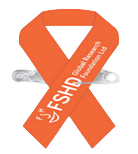By Sarah-Jane Tasker – 26th of May 2018
Bill Moss can see the words to the final chapter of his next book, and it’s about something that will not only change his life but the lives of millions of people around the globe: a cure for muscle-wasting disease FSHD.
The former Macquarie executive director strongly believes he will find a cure for FSHD, facioscapulohumeral dystrophy, and he is going to do it with a biotech model never seen before.
“If I can do this, it will be a world first,” Moss tells The Weekend Australian from his Sydney harbourside apartment.
“We are changing the paradigm of how the biotech industry works and we are making real progress in finding a cure.”
If passion alone could find a cure, Moss would have already found it.
He has poured more money into researching FSHD, a condition he was diagnosed with at the age of 28, than anyone else in the world.
On top of his personal financial contribution, he also set up a foundation 10 years ago, FSHD Global Research, which is the largest funder of FSHD medical research in the world, outside US government agencies. “What I have tried to do is create a charity that is a medical research charity that is single purpose,” Moss says.
“It is there to find a cure, not provide wheelchairs and breathing devices.”
The former banker knew his foundation was creating a significant dent in research into the disease — but the idea of foundations funding research before a biotech came in and commercialised the product didn’t sit comfortably with Moss.
“A biotech will build a compound up to a stage where they can sell it on to a pharmaceutical company, which will do the clinical trials and take it to a drug. That’s the model.”
The problem with that model, Moss says, is that by the time the drug is developed, it is often too expensive for most who need it.
“I didn’t think the model was in the best interest of people who wanted to get a cure that was affordable,” he says.
Moss sat down with Kees van der Graaf, who runs a FSHD foundation in the Netherlands, and the two decided a few years ago they needed to start their own biotech.
“We set up a company called Facio Therapies on a structure that was very different,” Moss says.
“It was set up on the basis that it would be managed and funded by people that have the disease, or their family have the disease,” Moss says.
“This is actually a new concept in the biotech space, where people with the disease establish, fund and set the strategy for a rare disease on a capital-efficient basis.”
Moss says when he retired from Macquarie 12 years ago he decided to turn his mind to medical research and find a cure for the disease that had forced him out of the banking industry.
“I got to the point where one day I couldn’t get out of the chair.
“I couldn’t get on a plane, or in and out of the car … so I decided to go find a cure,” he says.
There is no approved therapy for FSHD, which affects specific skeletal muscle groups, first in the face, then in the shoulders and then in the upper arms, sometimes spreading to the hips and legs. About 20 per cent of FSHD patients become wheelchair-bound, as 63-year-old Moss is.
The condition, which affects about two million people globally, is caused by the undue production of a protein called DUX4.
Facio Therapies is searching for a therapy that can identify compounds that repress DUX4.
Moss says the board of Facio is personally invested in finding a cure. Chairman Van der Graaf was previously on the board of Unilever: his eldest son has FSHD. David Mackay, a former head of Kellogg, is on the board: his wife has the condition. Chip Wilson, founder of global athletic wear company Lululemon, has FSHD and is on the board, as is former Shell executive Neil Camarta.
Not only is the corporate expertise on the board impressive, it is also a board that works for free.
“That’s the sort of biotech we are. We pay for our own airfares; we pay for our own expenses,” Moss says.
“Even the key staff agreed to take lesser pay and take options in the company. You need people that can share the vision.”
The company has been set up so that if in future it is profitable, 50 per cent of those profits will go back into products and services that subsidise the FSHD community.
The Facio model is to have a small team in The Netherlands and everything else is outsourced. It is a strategy that Moss calls the “Ikea model”.
“You outsource to the best people in the world and the first thing we did was find a drug development partner, Evotec, which is one of the world’s leading drug discovery companies,” he says.
“The ability to focus on a single disease and outsource the research ultimately means a cheaper cost to market.”
Evotec was so impressed with the FSHD research Facio had developed it took a 20 per cent stake in the company. The rest of the money has come from individuals with the disease and foundations around the world.
The biotech is raising between €8m ($12.3m) and €10m, which should be complete in the third quarter. Moss says the company will also create a separate trust where people with the disease who want to put in a small amount of money can invest.
The plan, he says, is to keep the company private and not be forced into a market listing like other small biotechs.
“We are determined to make sure that the people who have the disease control the company because we want a cure,” he says.
“This is not about making profit. It’s about getting a cure, which makes the model unique.”
Moss says he set up his foundation to find a cure and the day he does, he will close the foundation.
The therapy could be in trial in 2½ years, which gives Moss hope he will come close to meeting his own goal of finding a cure by the time he is 65.
“I’m thinking it will maybe line up … maybe we’ll get to that point and there’s my next book,” he says.
To see the article please visit https://www.theaustralian.com.au/business/bill-moss-the-singleminded-biotech-and-a-search-for-a-cure/news-story/746916e017a29e356a16281bf27a77bd




